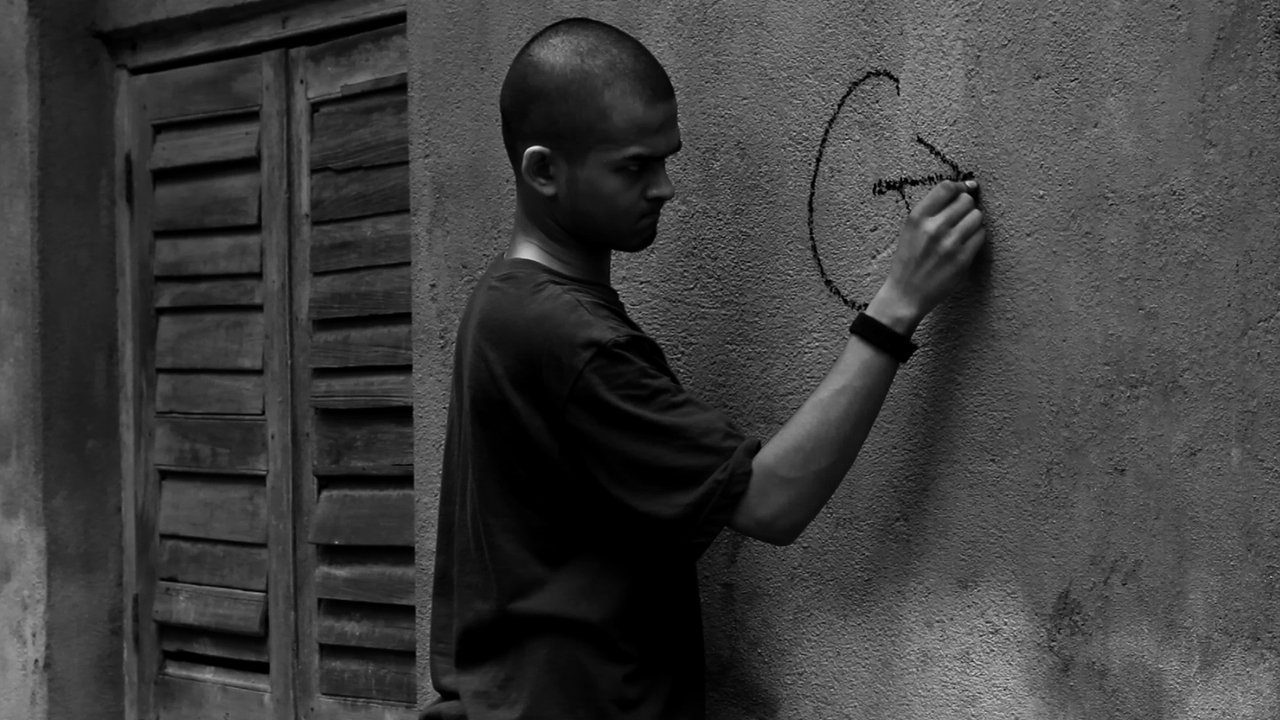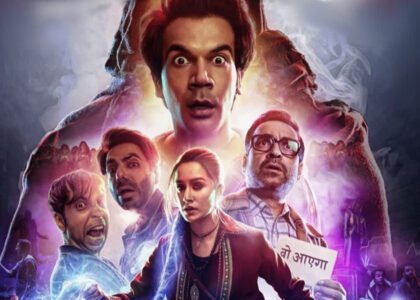I have always had a special place in my heart for conventional stories told unconventionally, and Gandu is one such movie. Its premise is rather normal — a struggling boy wants to make it big as a rapper but is shackled by the constraints of his environment. But with its non-linear narrative and distinctive shots, Gandu is a film that has genuinely pushed the bounds of Indian cinema and given us something unique in a country where mass appeal can be everything.
Gandu (2010)—Review At a Glance
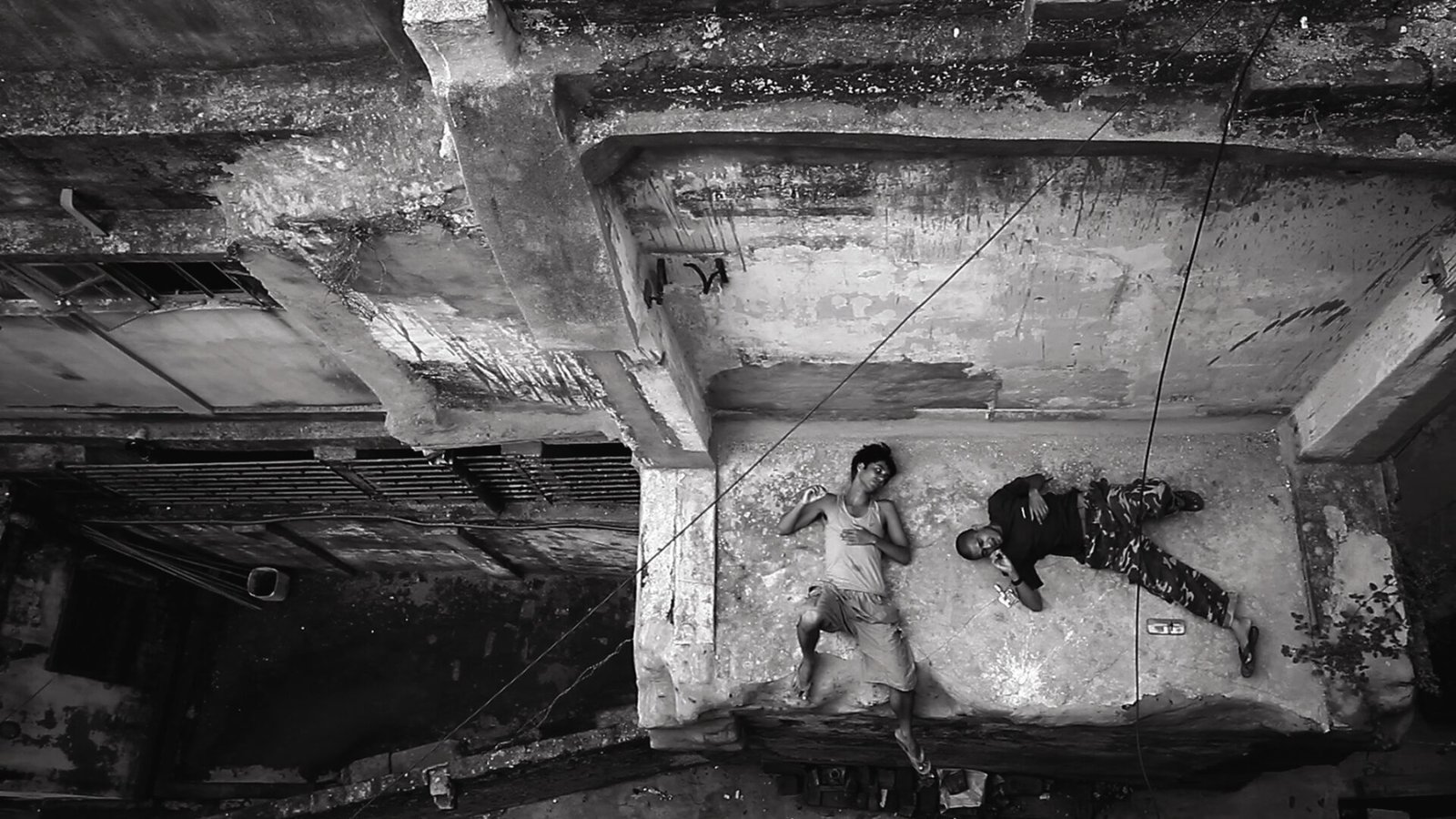
- Story — 3.5/5
- Acting — 4/5
- Music — 4.5/5
- Direction — 4/5
Must Watch: Yes!
When to Watch Gandu: A great choice for when one is feeling to existential
Gandu (2010) Review — A Deep Dive
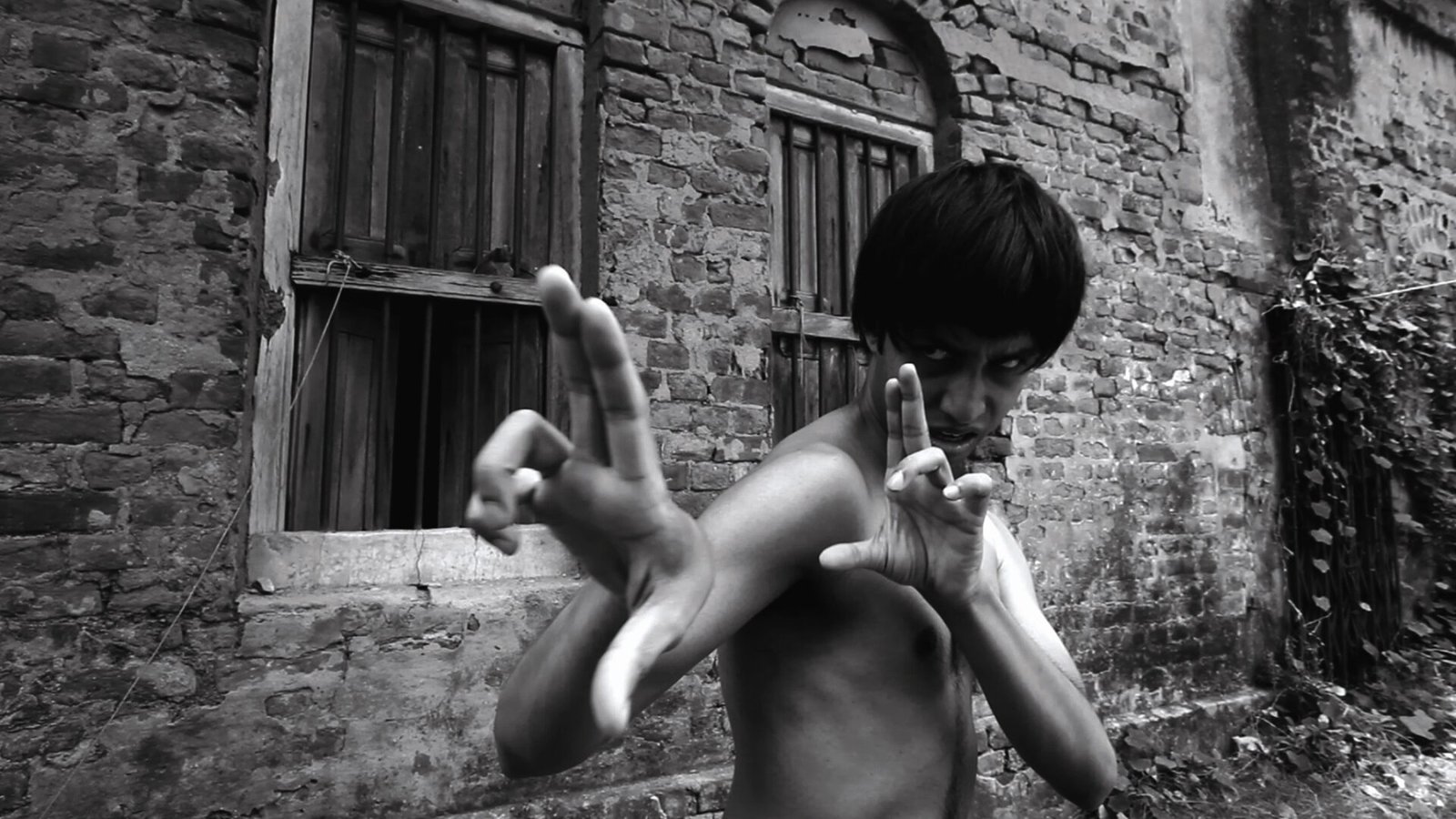
This movie is a gem, and of course, it is Bengali cinema that has given us this masterpiece about urban despair and loneliness. Whatever you think you should “expect” from Gandu, be ready to be surprised…
What seems like a mundane, regurgitated plot has been executed in a manner that is sublime despite being extremely experimental. Its non-linear narrative, coupled with the overall black-and-white shots, makes for effective storytelling. Moreover, Gandu captures the many fallacies of youth, as well as what it eventually takes for someone to “grow up,” with a certain nuance and sophistication that is usually missing from other mainstream films.
Anubrata Basu, who plays the titular Gandu, has done a great job of portraying his character’s anguish (which is also laced with curiosity). Joyraj Bhattacharjee, as Ricksha, has also done a commendable job. The two have an eclectic chemistry on screen that was rather refreshing to watch.

As far as direction is concerned, Gandu takes a bold approach, and the use of black and white cinematography interspersed with bursts of colour adds to the film’s hallucinatory and distinct atmosphere.
Gandu’s bold visual style is also thanks to the handheld camerawork, rapid editing, and a pulsating electronic soundtrack that help the film challenge cinematic norms to the extreme.
Yes, this film is quite graphic in many places and does not shy away from depicting some hard-hitting facets of Gandu’s life. So, you’re definitely not going to find anything PG-13 in this film. Having said that, though, I love the fact that the makers of Gandu made such artistic choices and did not bow to the pressures of “normalcy.”
The fact that Gandu is so unapologetic in its rhetoric is exactly what strikes a chord with the audience. If this movie “followed” the rules, so to say, then it wouldn’t be anywhere near as impactful or thought-provoking as the current iteration is.
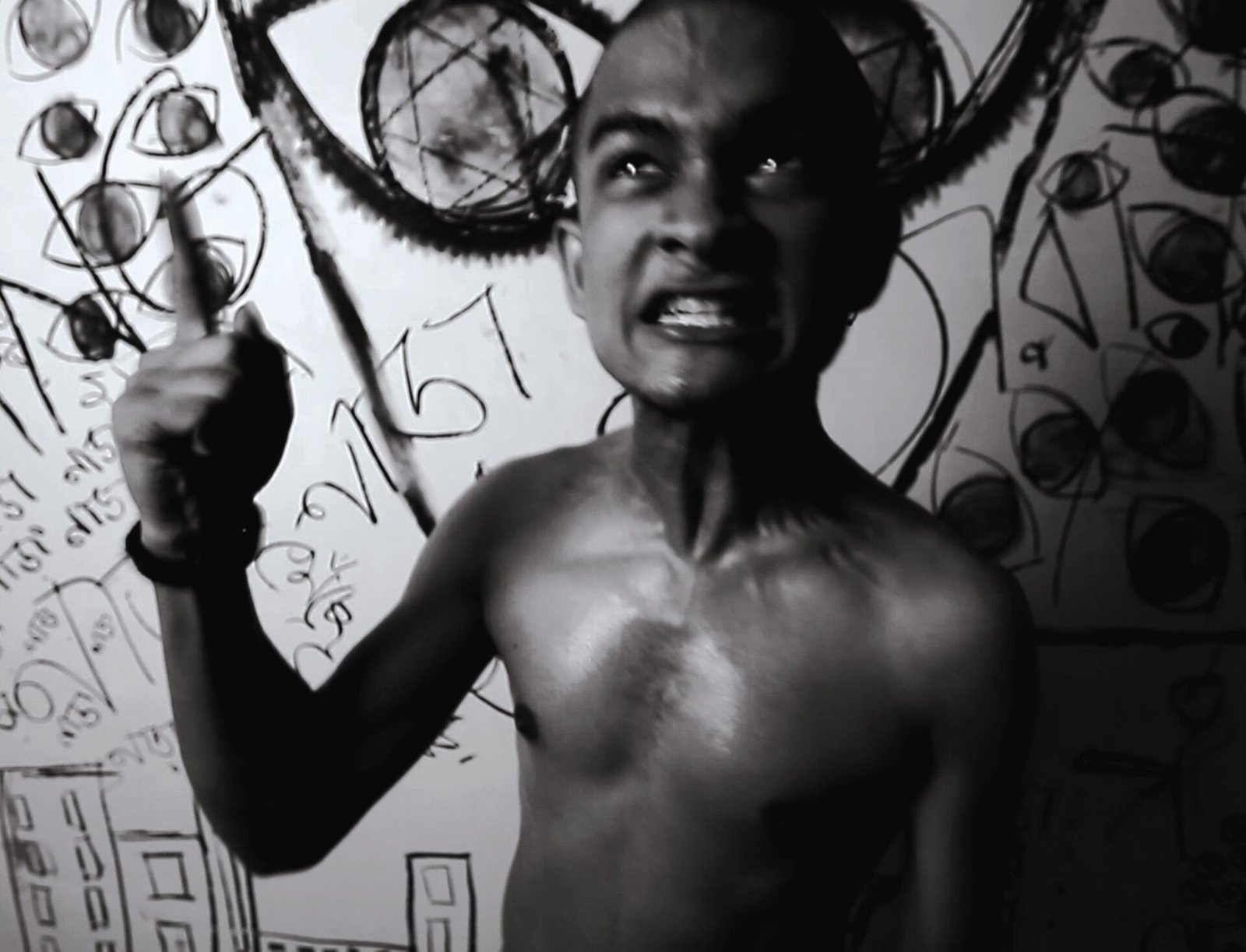
Lastly, Gandu’s music also deserves a shoutout. It wasn’t until I watched this film that I even thought of the Bengali rap genre… and oh my! This movie’s soundtrack obviously complements the struggles of its character, but the specific edgy/grungy vibe of the songs in Gandu is also something that is hard to come across in other Indian films.
All in all, Gandu is one movie that plays with genre tropes and conventional techniques to give you something truly remarkable and different. Youth may be wasted on the young, but Gandu is an exception to this sentiment, and for good reason.
Gandu Plot Overview
Gandu follows the journey of its eponymous protagonist, a young man living in Kolkata. Disillusioned with his mundane existence and oppressed by his overbearing mother, Gandu finds solace in rap music, using it as an outlet to express his frustrations and desires. He normally spends his days wandering aimlessly and engaging in petty theft, but Gandu actually dreams of being a professional rapper.
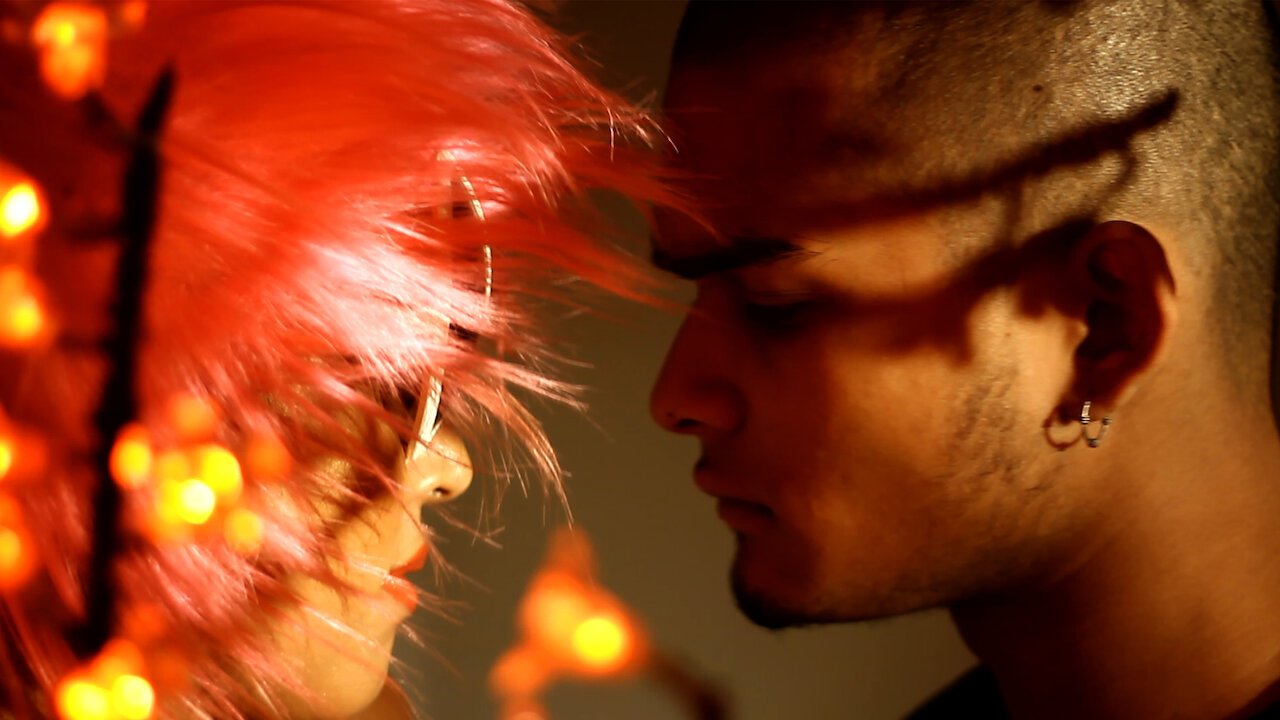
Things start changing when the lonely and nihilistic Gandu becomes friends with a rickshaw puller named Ricksha, prompting the protagonist to eventually explore his desires and confront societal taboos surrounding things like sexuality, life, ambition, and desire.

